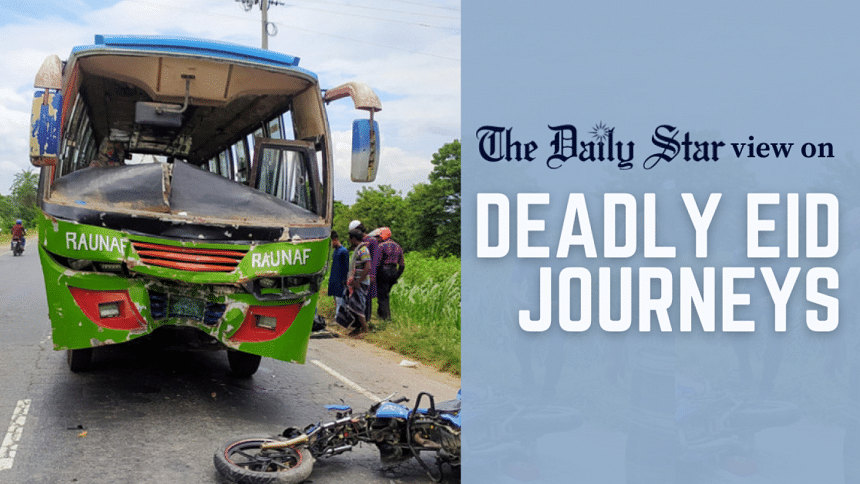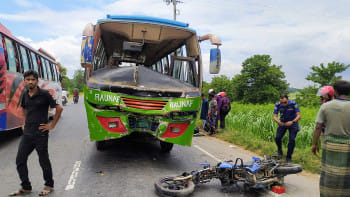Don’t normalise deadly Eid journeys

Eid vacations are no longer just a time of joy and reunion with family and friends, or brief, self-indulgent sojourns in suburbia; they are, increasingly, also the time when most heart-breaking tragedies occur, through deadly road crashes, as people move across the country. The two Eid festivals of this year, too, brought with them news of heavy casualties. Although early estimates point to a lower death toll in the five days of the Eid-ul-Azha vacation – about 51 as of Tuesday – the number will no doubt rise by the time all home-goers return and road crash figures are updated. This is really unfortunate.
We've repeatedly urged caution so that no unfit vehicles or unauthorised drivers are allowed on the highways during such hectic periods. But the authorities hardly seem bothered. Although stop-gap measures are occasionally taken, like disallowing auto-rickshaws, proper follow-up actions are rarely taken to ensure their effectiveness. For example, between April 25 and May 5, when the Eid-ul-Fitr vacation was in place, 249 people died in road crashes. Of them, 97 were motorcycle riders and passengers. So motorcycles were banned this time, but since no alternative options were given to desperate passengers, the high demand for transport led to many unfit buses without route permits plying the highways, making passengers further vulnerable.
Reportedly, between July 7 and 9, at least 53 incidents of broken vehicles, crashes and engines stalling after running out of fuel were reported on the Jamuna Bridge and its approach roads alone, contributing to long tailbacks. The question is, how justified was the blanket ban on motorcycles? More importantly, why were unfit buses allowed to replace them? This is a good example of how decisions are often taken in the transport sector, as a knee-jerk response, without weighing up all the pros and cons, and without a careful reading of all the contributing factors in road crashes. The combination of poor planning and lax monitoring nullifies the benefits of even well-intended measures.
That road crashes and casualties continue to occur, and in such large numbers, despite the huge investments made in road infrastructure projects across the country, is really disconcerting. The transport authorities must change their business-as-usual approach to road safety, especially during Eid vacations, otherwise those beautiful bridges, roads and highways will be little more than beautiful traps for travellers. The road transport and bridges minister has admitted that "flawed management and lack of coordination" were responsible for the tailbacks before this Eid. We expect such admissions to be turned into concrete, preventive action so that not just tailbacks, but no deaths or injuries from road crashes can mar the experience of ordinary passengers. We must not normalise deadly Eid journeys.

 For all latest news, follow The Daily Star's Google News channel.
For all latest news, follow The Daily Star's Google News channel. 





Comments